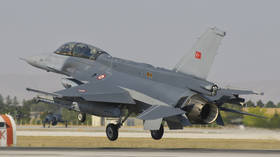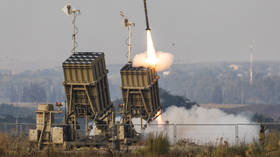Greece targets Turkish jets – media

Greek air defense systems placed a radar lock on Turkish aircraft that were flying a reconnaissance mission, in a move that NATO rules describe as “a hostile act,” CNN Turk reported on Sunday citing its sources in the Turkish defense ministry.
According to the outlet, Turkish F-16 jets were conducting an operation in the Aegean Sea and Eastern Mediterranean in international airspace on August 23 when they were locked-on by a Russian-made S-300 air defense complex stationed on the island of Crete. The Turkish jets apparently picked up that they were in the crosshairs of a weapon as they flew at an altitude of 3,000 meters and to the west of the island of Rhodes.
Greek media denounced the Turkish mission as “provocation,” arguing that Ankara was trying to reveal the S-300 position on Crete.
While the aircraft completed their mission and returned safely to their bases, such actions are considered “hostile” under NATO rules of engagement, CNN Turk noted. It described the incident as “incompatible with the spirit of the alliance,” given that both Turkey and Greece are members of the military alliance.
The latest allegation comes after Greek F-16 jets “harassed” Turkish planes in the same region on Thursday by locking their radars on the targets, according to reports. A similar incident reportedly happened over the Eastern Mediterranean on Tuesday, with the Greek military attaché being summoned to the Turkish Ministry of National Defense.
“Greece continues to persistently target NATO missions to increase tensions,” and the latest incident proved that Athens had planned the move in advance, Daily Sabah’s sources in the ministry claimed at the time.
Turkey and Greece have been balancing on the brink of conflict since 1996 over two islands in the Eastern Mediterranean, as well as over maritime frontiers and deposits of precious resources like oil and gas. Another point of contention is migration, with Greece accusing Ankara of “making use” of refugees, who try to get into Europe via the Greece-Turkey border.













